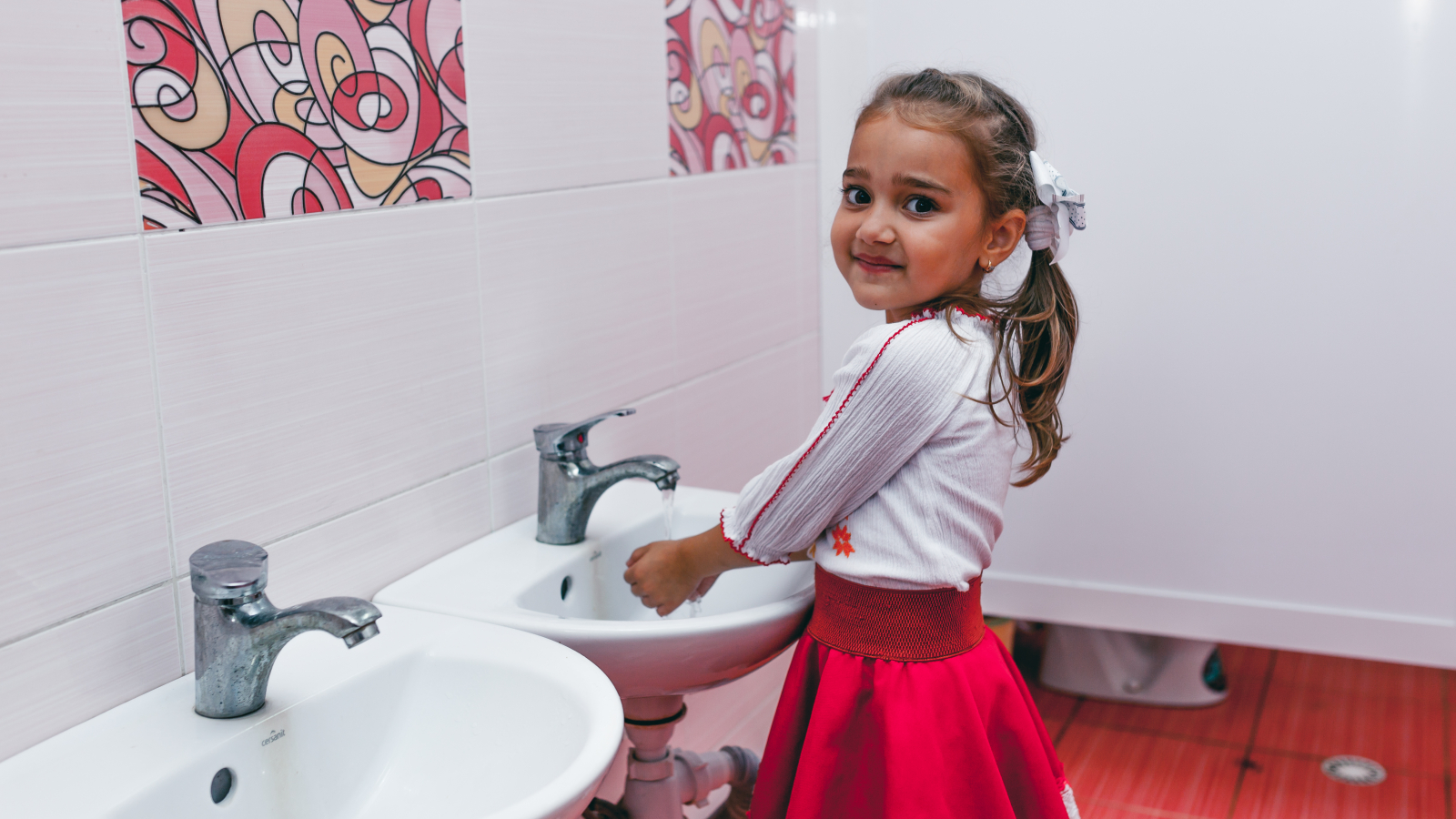A kindergarten in Horesti has switched from natural gas heating to green energy. From this autumn, the institution’s heating will be provided by biomass, and its hot water by solar energy. Over 230 children and 30 employees will benefit from better conditions. The investment was possible thanks to the financial support of the EU provided by the Moldova Energy and Biomass Project, which is implemented by the United Nations Development Programme.
“We started feeling the comfort of having hot water anytime, without being concerned with the bills. In a kindergarten, hot water is not a luxury, but a necessity. Children need to wash their hands as often as possible, and we need hot water in the kitchen to wash the dishes,” says Elena Condurache, interim director of the kindergarten.
Both the administration of the kindergarten, as well as the town hall, say that this project benefits the local community and, especially, families who have children in the kindergarten. “Thanks to the support offered by the European Union, we managed to implement a project we have been dreaming about – to provide good conditions for children and kindergarten’s employees,” says the village mayor, Petru Cigoreanu. He hopes that he will manage to access funds to bring clean energy to other social institutions in the locality as well:
“We know that clean energy systems are not only eco-friendly, but also economically efficient. We have biofuel producers both in the locality and in the district. Thus, we will be able to support the domestic producers and we will contribute to environment’s protection. The savings we will get will be used to repair the kindergarten’s building and to ensure optimal conditions for children.”
The preschool institution in Horesti, Ialoveni is one of 265 kindergartens, schools and health facilities that has been connected to biomass heating systems with the support of the EU within the Energy and Biomass Project.





















































